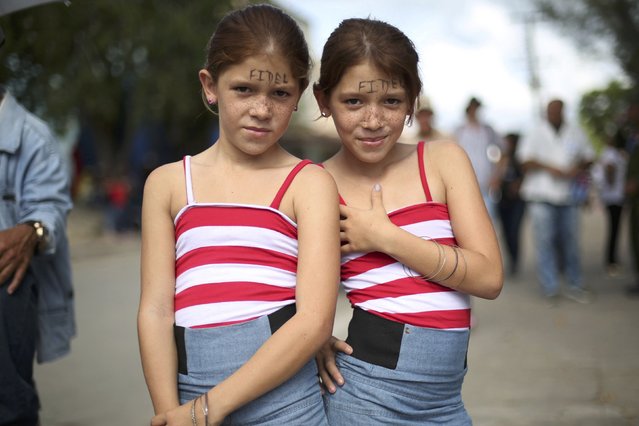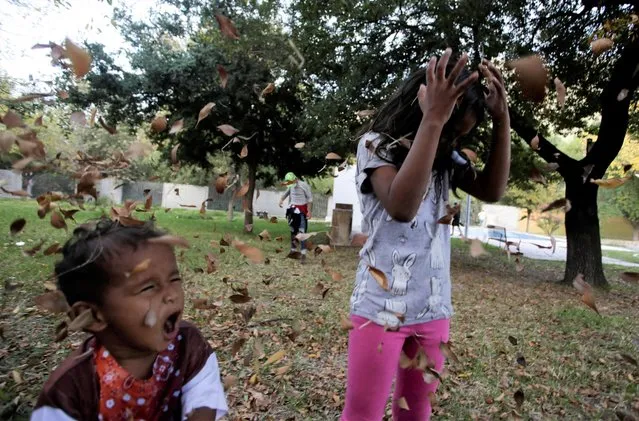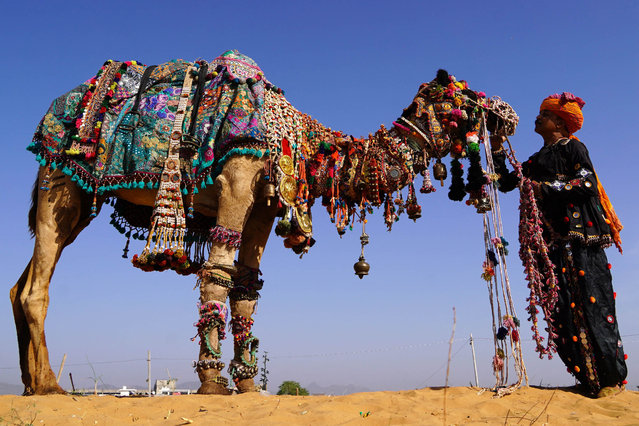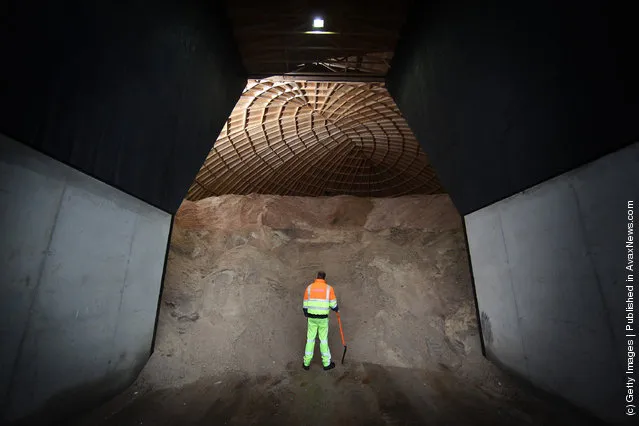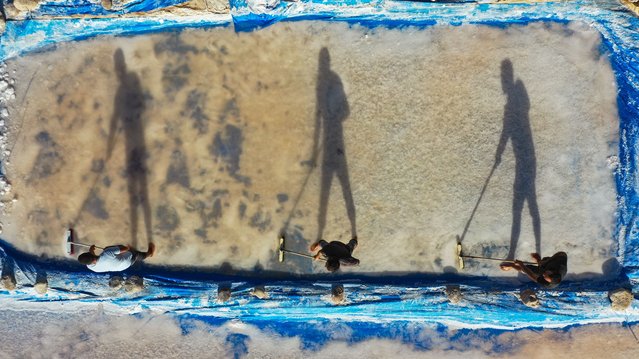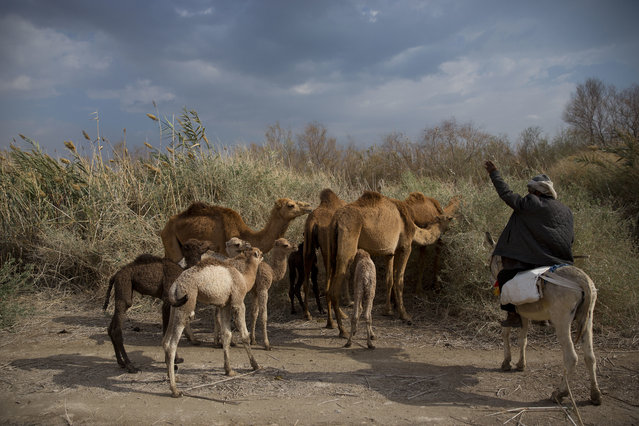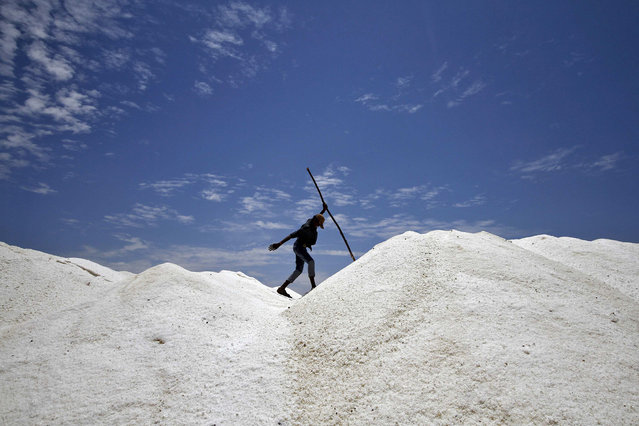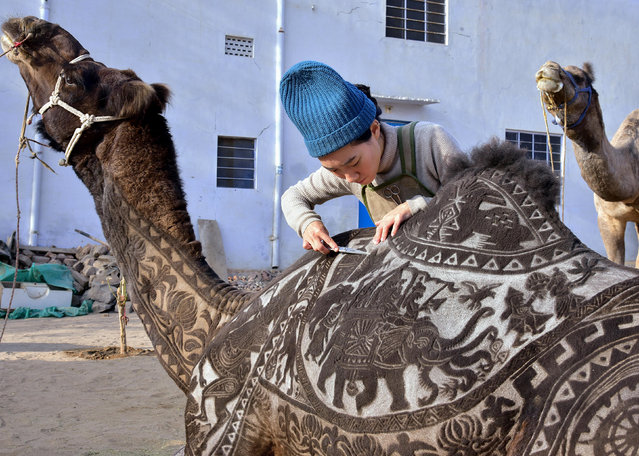
Japanese hairdresser Megumi Takeichi cuts patterns into the hair of a camel ahead of the Bikaner Camel Festival in Bikaner in the western Indian state of Rajasthan on January 10, 2019. (Photo by Dinesh Gupta/AFP Photo)
13 Jan 2019 00:03:00,post received
0 comments

